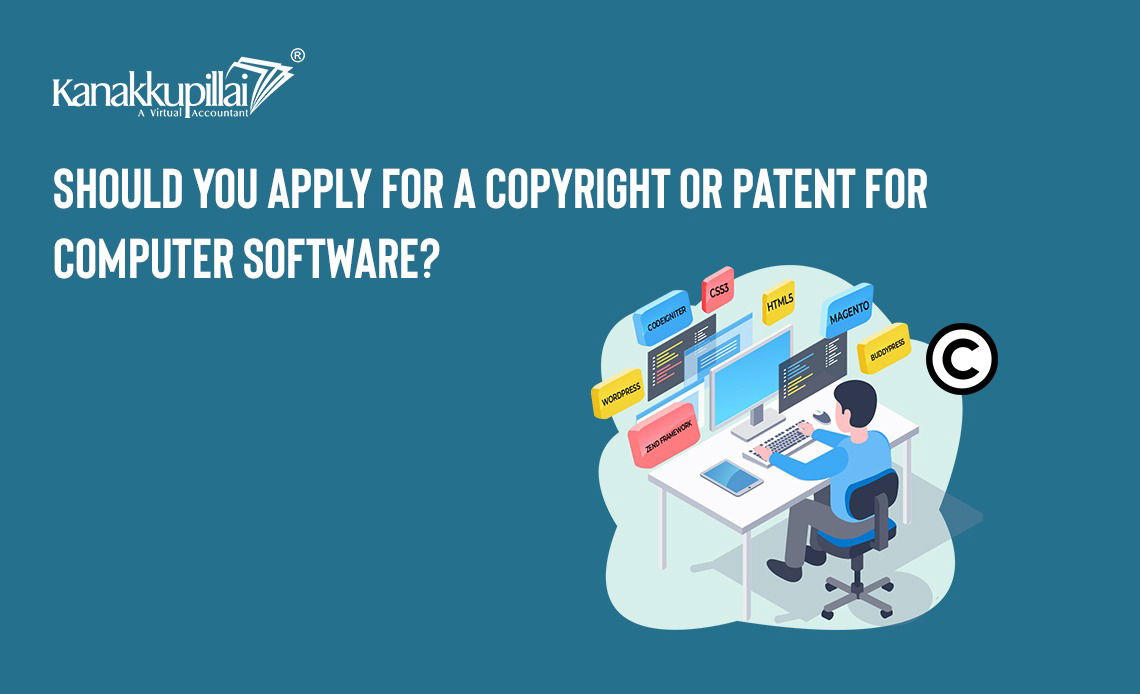A computer program or software is a set of instructions executed by a computer or laptop. These can be either in the source code form or object code or in a joint form, which consumes a lot of labor, skill, and time to develop them. When the demand for such computer programs or software rises, there is a greater chance for ascending in the market value and can be resulted in someone can copy it and use it on their name, get all the credits which you want to receive.
Hence, these should be protected by a strict legal system. As a result of this, In India, Software can be protected under a law known as “copyright law,” and the list of inventions related to the software can be protected under the law – Patent.
Protection Under Copyrights
The Copyright Act of India has come into the practice to include ‘computer software or program’ as literary work. In addition to this, Section 2 FFC of the Act denotes the Computer program as a lump sum of data expressed in either words or codes, schemes, or other forms, which includes a bot readable medium capable of making a computer or a laptop to perform the desired task or achieve the required result. So, the software programs can be officially protected under Copyright law.
This is an example of a software program registered for Hindi to Punjabi Machine Translation Software under the Copyrights Act developed by the professors of Punjab University. Copyright protection can extend the author’s lifetime to 60 years. Hence, safeguarding the software program under copyright law is an attractive feature for all creatives. However, it must be noted that copyright can safeguard or protect only an idea’s expression and not the complete idea or the idea itself. So, in the case of computer software, it could be the software program that is protected and not the functions of the particular software program. Hence, it may not be a wise idea to rely solely on copyright law to protect software-related discoveries or inventions. You may also explore the choice to protect software-related inventions using patents.
Reach us for Copyright Registration at a lower price. Email: support@www.kanakkupillai.com | Contact: +91 7305 345 345
Protection Under Patents
A computer software patent is denoted by FFII (Foundation for a Free Information Infrastructure) as being a patent on any computer performance put together with a computer program or software. The Indian Patent Act allows only a new, unique product or the processes that involve an innovative step or capable of whether an industrial application is patentable anytime, and it also provides a bundle of subject matters that can never be patented. Section 3 of this Act drops down with some subject matter that can never be patented, and Section 3-k, as per the law, states that computer programs are not patentable when it comes to the subject matter.
Many countries, including India, place a certain limit on patenting of inventions that involve software or programs. For example, the U.S. patent law has been formulated to exclude some of the abstract ideas, and this method has been used to refuse many patent applications involving software.
In European countries, computer programs like this kind are excluded from bringing patentability. The EPO held a program for a computer that is not patentable and does not have any potential to cause further technical effects (beyond the inherent technical interactions between hardware and software).
It is prominent to note that a computer program or source code may not be allowed to be patented in India, but it does not bring to a conclusion that a software invention cannot be patented. A wise way to determine whether the software inventions will be considered a patentable subject matter or not is to keep on trying to find whether the software invention provides a technical solution to the specific technical problem. The inventions may be accepted as patentable subject matter if the specific software invention offers a technical solution to the unified technical problem. Soon after software inventions are patented, they can be valid for a period of 20 years.
Advantage of a Patent over Copyright
A patent on a software invention can be used to prevent others from utilizing a unique algorithm without permission from the creator or to prevent anyone from creating software programs that perform against a patent-protected list of functions. On the contrary, copyright law safeguards only an idea’s expression but not the entire idea itself. To be precise, copyright can only protect the copying of any particular visualization of an idea. Copying of entire source code or a portion of source code, and not the copy of the functionality. So, it is obvious that patents offer much-widened protection to computer software.
There are huge differences in software protection offered by any patent and copyright. A few of the major contrasting features of these two forms of protection are listed below.
- Patent law usually protects the functional aspects of any computer software invention. Copyright law protects the idea that is being expressed. Under copyright law, the expression form is protected, and not the particular idea or a concept.
- Copyrights can become much more effective the moment a work is put up in a fixed zone, under the tangible form of expressions. A patent needs to be applied for the same and made public (some countries provide a grace period for filing a patent application post-public disclosure).
- Copyright protection can extend for the author’s lifetime with 60 years (It may change based on the type of software, program, or the unique work being copyrighted). But the law patent provides a term of just around 20 years and is much lesser than the copyright.
Related Services





